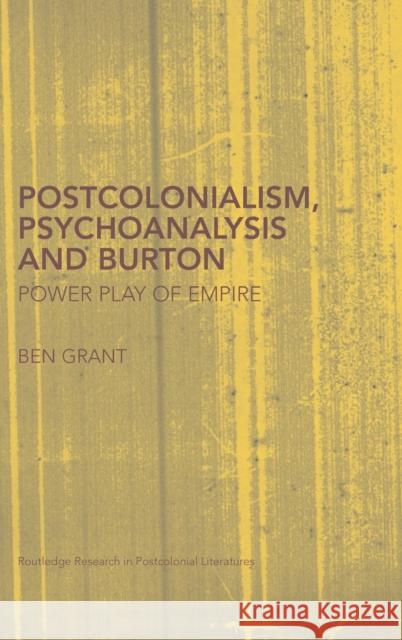Postcolonialism, Psychoanalysis and Burton: Power Play of Empire » książka
Postcolonialism, Psychoanalysis and Burton: Power Play of Empire
ISBN-13: 9780415450867 / Angielski / Twarda / 2008 / 222 str.
Postcolonialism, Psychoanalysis and Burton: Power Play of Empire
ISBN-13: 9780415450867 / Angielski / Twarda / 2008 / 222 str.
(netto: 699,68 VAT: 5%)
Najniższa cena z 30 dni: 705,23
ok. 16-18 dni roboczych.
Darmowa dostawa!
By engaging closely with the work of Richard Francis Burton (1821-90), the iconic nineteenth-century imperial spy, explorer, anthropologist and translator, Postcolonialism, Psychoanalysis and Burton explores the White Man s imperial fantasies, and the ways in which the many metropolitan discourses to which Burton contributed drew upon and reinforced an intimate connection between fantasy and power in the space of Empire. This original study sheds new light on the mechanisms of imperial appropriation and pays particular attention to Burton s relationship with his alter ego, Abdullah, the name by which he famously travelled to Mecca and Medina disguised as a Muslim pilgrim. In this context, Grant also provides insightful readings of a number of Burton s contemporaries, such as Muller, du Chaillu, Darwin and Huxley, and engages with postcolonial and psychoanalytic theory in order to highlight the problematic relationship between the individual and imperialism, and to encourage readers to think about what it means to read colonial history and imperial narrative today.
By engaging closely with the work of Richard Francis Burton (1821-90), the iconic nineteenth century imperial spy, explorer, anthropologist and translator, Postcolonialism, Psychoanalysis and Burton: Power Play of Empire explores the White Man’s ‘imperial fantasies’, and the ways in which the many metropolitan discourses to which Burton contributed drew upon and reinforced an intimate connection between fantasy and power in the space of Empire. This original study sheds new light on the mechanisms of imperial appropriation and pays particular attention to Burton’s relationship with his alter ego, Abdullah, the name by which he famously travelled to Mecca and Medina disguised as a Muslim pilgrim. In this context, Postcolonialism, Psychoanalysis and Burton: Power Play of Empire also provides insightful readings of a number of Burton’s contemporaries, such as Müller, du Chaillu, Darwin and Huxley, and engages with postcolonial and psychoanalytic theory in order to highlight the problematic relationship between the ‘individual’ and imperialism, and to encourage readers to think about what it means to read colonial history and imperial narrative today.











